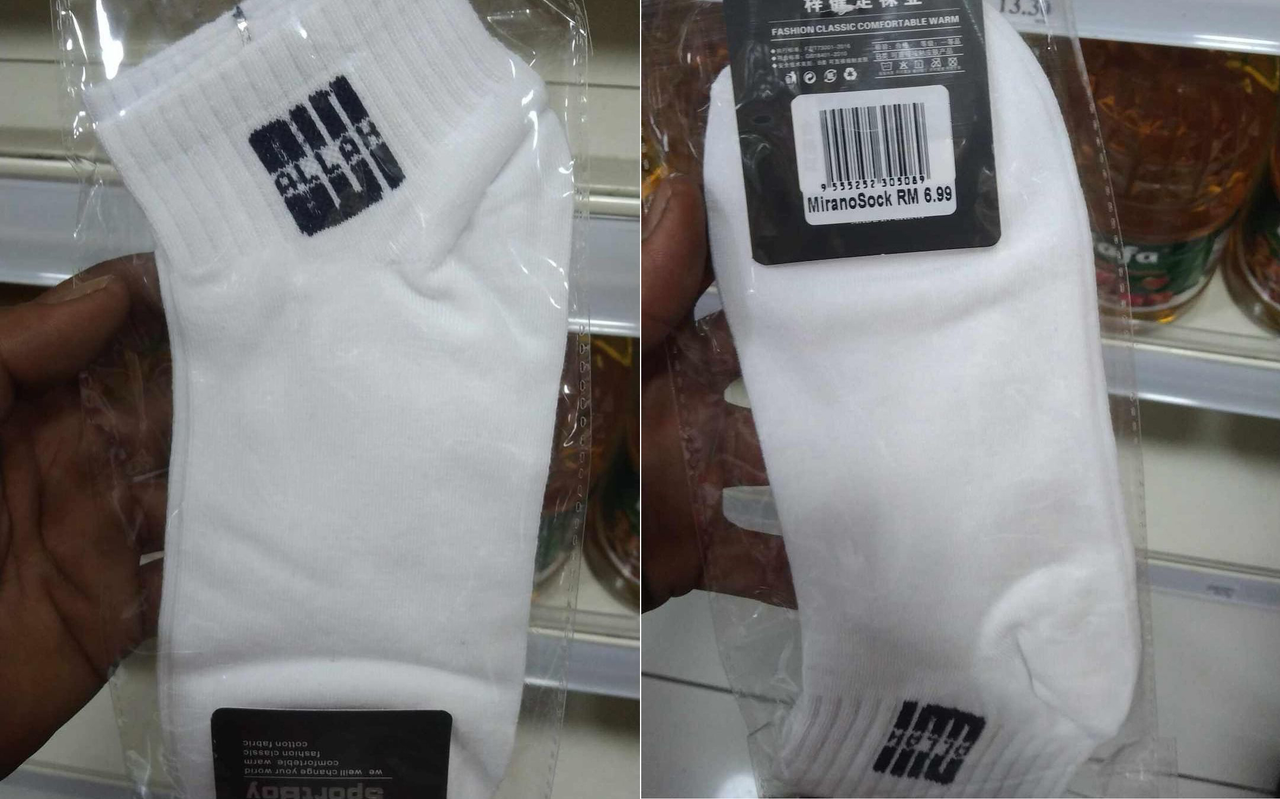Confused About The 'Allah' Socks Issue? This UM Professor Explains Why They're Offensive
The professor disagreed with both extremes on the spectrum: the "religious zealots" and the "people with the 'so what' attitude".
A Universiti Malaya (UM) professor has weighed in on the controversy surrounding KK Mart selling socks with the word 'Allah' printed on them, explaining why the product is considered offensive
In an interview with BFM, Dr Alwani Ghazali, a senior lecturer in the Department of Aqidah and Islamic Thought at the Academy of Islamic Studies in UM, said that feet are associated with a "lowly status".
"When the socks are printed with the word 'Allah', it becomes very demeaning because the foot is associated with the lowly creature... lowly status.
"Socks stink, do you agree? Are you happy to smell your socks after using them all day?
"Or let me put it in another way: Do you think it's okay to write the word 'Buddha' or 'Jesus' on your feet or on socks?
"As a Muslim, I think it's inappropriate and [the issue] is a big deal," said Alwani, who is also deputy director of Centre for Civilisational Dialogue at the university.
When the professor was asked about the calls to boycott KK Mart, she said, "Malay Muslims have a right to do that"
"I would agree with the calls for a boycott. I see that the citizens of Malaysia, Malay Muslims especially, have the rights to do that. [It demonstrates that] everyone living in Malaysia must be educated about what our culture means [and] what religion means.
"That [boycott] is a good step to take, but of course, it's going to be temporary until all the matters are cleared and resolved by the authorities," she opined.
Commenting on the social discourse on the matter, Alwani disagreed with both extremes on the spectrum: the "irrational, ridiculous, hostile, religious zealots" and "people with the 'tak apa' or 'so what' attitude".
"Both [sides] are problematic to me as a true Muslim," she shared.
Alwani also hinted that political leaders might have exploited the issue to their benefit, portraying themselves as "heroes" to the public
"It's, of course, easy to ride on the sentiment to gain some short-term victories by acting like a hero in this circumstance.
"For me, true leaders aren't cheap. By using hate speech in this kind of situation, [they are blowing the issue] out of proportion," she told BFM.
She said political leaders have a responsibility to not only educate the public, but also ensure that unity is not jeopardised.

